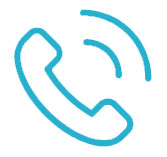Product Description
Clavicle Fracture Sling for Treating Broken Collar Bones
This simple clavicle fracture brace packs a big punch when it comes to clavicle pain relief (find out what might be causing your collarbone pain) and posture support. The figure-eight straps of the shoulder brace hold your shoulders in a retracted position, which immobilizes the collarbone region as needed for a clavicle break, a separated collarbone (AKA, a sprain/strain of the acromioclavicular (AC) joint) or a sternal fracture.
You can also use the clavicle immobilizer as a posture brace that forces you to sit up straight with the shoulders back. However, you may want to check out this posture corrector, since it is a bit easier to adjust while you are wearing it. It is important to note that while clavicle braces and posture braces look similar, their functions are different - learn more about clavicle vs. posture supports here.
What sizes does this clavicle brace come in?
This broken collarbone brace comes in a wide variety of sizes, and you should determine your fit by measuring the circumference around your chest. The 2X-small version of this brace is narrow enough to help an infant with a fractured clavicle, while the X-large clavicle splint is intended for a large man or woman.
Besides differences in the length of the straps, the small version of this brace that are meant for children, teens, and small, skinny adults have narrower straps that are better suited for their smaller frames.
You can find a 2XS size of brace that fits babies and infants here.
Is this collarbone brace comfortable to wear?
All sizes of the collarbone brace are padded, which makes the broken clavicle sling more comfortable to wear. The felt material of the straps is covered with a breathable stockinette material that is soft against the skin. Thanks to this mix of materials, the clavicle brace is pretty lightweight.
There is also a felt pad beneath the plastic triangle where the straps merge between your shoulders to prevent any uncomfortable rubbing.
All of these comfort-features take on added importance when you consider that the recovery time for a broken collarbone is typically around six to eight weeks for an adult and three to six weeks for children. Ask your doctor how often and how long you should wear this brace for, depending on the severity of your injury.
Is this brace easy to put on?
You’ll be pleasantly surprised by how easy it is to apply this figure-8 sling, even with a broken collarbone. You will likely need some help to get the fit just right, however. The sling loops around the shoulders like a back pack, or you can slip it over your head like a t-shirt. The fit can be tightened or loosened by adjusting the length of the straps back of the brace using the fasteners. However, you should have someone help you put the brace on and adjust it for the first time.
Since the adjustment straps are in back, you'd have to reach your arms back behind you to pull the straps yourself - which could cause further damage to your collarbone. So we recommend having someone assist you.
This versatile collarbone splint with protection pads is free of latex.
How to Heal from a Collarbone Fracture Using this Brace
Fractures to the thin clavicle bones that connect the arm to the body are quite common, especially among children and young adults. That is because the collarbones do not fully harden until roughly age 20. Even infants sometimes break their collarbones on their way through the birth canal! Therefore, our clavicle braces come in 2X-small, extra small and small sizes that are meant for babies, toddlers and children.
Falls or blows to the shoulder are common causes of such breaks. Thankfully, most collarbone fractures heal quite well with non-surgical treatment.
Collar bone fissure treatment typically involves wearing an arm sling or figure-eight clavicle brace to support the weight of your arm and ease pain. Immobilizing the collarbone area is important for protecting it from additional damage and allowing healing to take place.
You should also ice the collarbone region at regular intervals. This can ease swelling and provide pain relief if you are dealing with a broken clavicle. Once swelling has gone down, you will likely need to go through some physical therapy to return strength and range of motion to the shoulder and arm.
In some cases, such as if you have a displaced fracture where bones have shifted out of position, you may need surgery to fix the bone in place as it heals. Afterward, you will likely need to wear a sling or some other type of collarbone immobilizer.
What Other Shoulder or Clavicle Injuries Might be Causing my Pain?
The same forces that can cause a break to the clavicle can also lead to a separated shoulder, also known as a sprain/strain to the acromioclavicular (AC) joint. With this injury, the ligaments that hold the collarbone to the shoulder blade are either overstretched or, in more severe cases, torn.
-
AC Joint Separation
Your treatment of AC joint separation will begin with taking a break from aggravating activities, applying ice by wearing a shoulder therapy ice wrap, and taking medicine to address pain and swelling. Rest will likely also involve temporarily immobilizing your arm in a sling to reduce pressure on the joint and encourage healing. Eventually, physical therapy will likely be needed. Most are back to normal within a few weeks.
If pain lingers or your tear is severe, you made need surgery to repair a blown out shoulder. Then you'll want to wear some sort of post-op brace for shoulder surgery recovery.
-
Sternum Fracture
This versatile support can also function as a sternum fracture brace. This might be needed after a fracture to the breastbone (sternum) at the center of your chest that attaches your first seven ribs to the collarbone. As you might imagine, this is not an easy bone to break.
Sternum fractures typically occur during an automobile accident where the chest either slams into the steering wheel or the seatbelt. Sternal breaks are often associated with other internal injuries that can be quite serious, so be sure to rule those out by getting checked at the doctor.
Treatment for a sternal fracture focuses on reducing pain and limiting movement, while being careful not to restrict normal chest expansion. Therefore, you will have to rest from aggravating activities and positions, use ice and pain killers to address swelling and pain, and possibly wear a broken sternum brace like this.
-
Poor Posture
Wearing a brace for a broken sternum to help you stand tall with the back straight can protect the sternum from additional damage.If you have poor posture, trying to sit up straight is also great for encouraging deep breathing, which is important for preventing complications. You may also want to try these back strengthening exercises to help your posture.
And as previously mentioned, this also works well as a low-profile posture brace. The posture reminder straps hold back the shoulders, keeping you from slouching. Since kids (particularly adolescents) are often the ones in need of such reminders, the fact that this support comes in child sizes is great.
FAQs on this Broken Clavicle Brace
- What conditions / injuries does this collar bone wrap treat? It can help with many sources of clavicle and shoulder pain, including a broken collarbone, a separated shoulder (AC joint separation), a dislocated shoulder, or a sternum fracture.
- How does it work? The cushioned figure-eight straps hold the shoulders in a retracted (rolled back) position, which immobilizes the collarbone region and protects against damaging movements. The chest brace also supports the shoulders, which in addition to holding the region still can help ease pain. Wearing a demobilzer for a broken clavicle, sternal fracture, etc. gives the injury a chance to heal. The collarbone bandages can also act as a good reminder to take it easy.
- When should I wear it? You should follow a doctor’s instructions regarding use. Typically, a doctor will recommend wearing a brace for a broken collarbone for around six to eight weeks. For children, that timeframe will likely be shorter. You will likely have to wear the collar bone protector both during the day and at night, taking it off for bathing.
- What is this splint made of? The straps are made of felt covered in a comfortable stockinette material. The D-ring is plastic and the strap closures are fastener compatible. There is also a felt pad that shields the skin between the shoulders from the juncture of the straps and D-ring.
- Who can wear this splint? This figure 8 clavicle harness comes in a wide ranges of sizes, fitting infants, toddlers, children, young adults and adults. It fits chest circumferences ranging from 24 inches to 46 inches.
- How do I put on the clavicle brace? Feed the unsecured strap through the triangular D-ring and secure it using the fastener. Slide your arms and shoulders into the straps like you would with a backpack. You may need someone to help you get the fit just right. The medical wrap should hold the shoulders in a comfortably rolled back position. It should not be so tight that it restricts circulation.
- Washing Instructions Close all fasteners and hand wash in warm water with mild soap. The brace should be air dried. Do not use high temperatures to wash or dry the collarbone splint.
-
Other features:
- Padding makes the figure eight straps comfortable, plus the child-size braces have slightly narrower straps that work better for children.
- A felt back pad where the straps merge protects the skin from irritation.
- Fasteners make application and adjustment of this lightweight dislocated clavicle brace a breeze.
- Color Beige and white.























